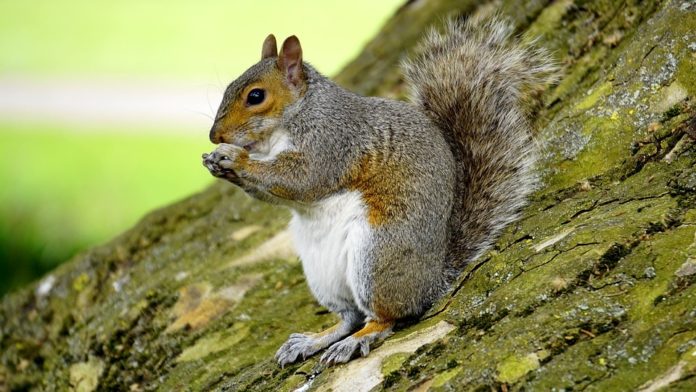Staff at Secret World Wildlife Rescue Centre near Burnham-On-Sea say they are “sad” that a new law means they are no longer legally allowed to accept grey squirrels.
The centre in East Huntspill says the law – the Invasive Alien Species Order 2019 – restricts the release of some animals, and also the growth of certain plants.
In a statement, Secret World says: “In common with other wildlife centres we are sadly no longer able to accept grey squirrel orphans and casualties, except for emergency euthanasia.”
“This is as a result of ‘EU regulation 1143/2014 invasive alien species ‘enforcement and permitting’ Order 2019′, meaning we no longer have a license to legally keep or release these animals.”
“This is not our decision and we are sad that it has come to this, but in order to continue the work that we do we must abide by the law.”
The regulation was brought in to combat animals and plants that may impact local environment and native species.
Sarah Tingvol, Secret World’s Rehabilitation Section Leader, told Burnham-On-Sea.com: “The Invasive Alien Species (Enforcement and Permitting) Order 2019 means that licences to keep and release grey squirrels will no longer be issued, even in areas such as Somerset, where there are no red squirrels. Although government is keen to emphasise that there is no requirement on vets to euthanise any injured or healthy squirrels that are brought into rescue centres, the lack of licences to keep and release means that there will be no realistic alternative.”
“We believe that the policy is detrimental to the welfare of established British wildlife and animals will suffer. The policy will drive the care, rearing and release of grey squirrels and other non-indigenous species underground, forcing amateur animal lovers to keep the animals themselves, rather than risk them being euthanised.”
“Animals with injuries such as broken legs or head trauma will potentially not receive adequate veterinary care and will suffer in pain instead. Well-meaning amateurs will not have the knowledge or experience to feed baby squirrels and this is likely to result in conditions such as milk aspiration and pneumonia, diarrhoea, metabolic bone disease and death. Tame squirrels may be released back into the wild with no records of the numbers or locations where they are released.”
She adds: “Under the previous licensing system Natural England know both where grey squirrels are released and how many are released. In reality the number of animals released under the previous system was extremely small and insignificant in terms of overall numbers of these animals in the wild. The animals that were released were healthy and the previous system means that they pose no threat to existing wildlife.”
“As a wildlife rescue centre we are clearly very supportive of anything that encourages and maintains populations of our lovely native red squirrel populations. We do not however believe that the new legislative Order does this, as the demise of the red squirrel population is much more complex and cannot be simply blamed on the grey squirrel.”
“Destruction of red squirrel habitats and mass hunting, of what was viewed as a ‘pest’ species, resulted in their extinction in the 18th century and they were subsequently reintroduced from Scandinavia. Since then habitat destruction and fragmentation due to urbanisation and agricultural expansion have cleared around 50% of the forests inhabited by the red squirrels, greatly affecting population numbers. Creating a welfare problem for grey squirrels, in situations where they are no threat to reds, in not the answer.”
The charity’s Marlies Hebdon added: “Our staff and volunteers are extremely upset that the decision to not issue licences for grey squirrels and muntjac deer has been taken. The orphan rearers are mortified that this year they can no longer care for these animals.”
“Due to an EU directive(on alien species), which the government has decided to adopt, no licences are being issued in the UK for releases of these species. Although some centres are applying for licences to keep these animals for their entire lives, there are strict rules and regulations around how they are kept and that they must not be allowed to escape. There is also a limit on the amount that can be kept at any one time.”







